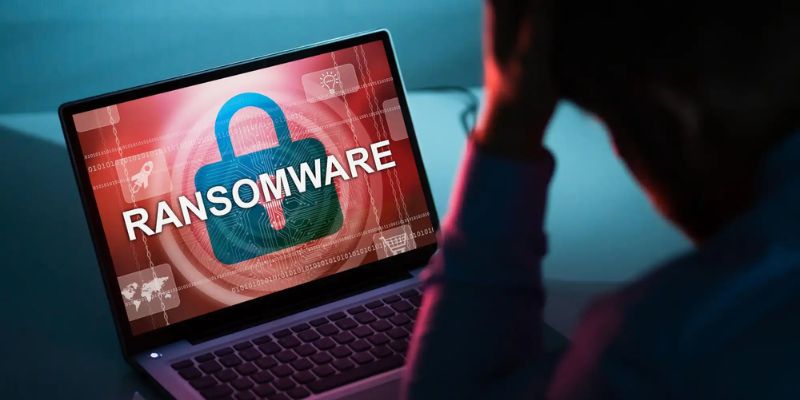
Ransomware attacks have become one of the most significant cybersecurity threats faced by organizations worldwide. These attacks involve malicious software that encrypts sensitive data, holding it hostage until a ransom is paid. The financial and reputational damage caused by such incidents can be devastating. This blog will explore practical strategies organizations can adopt to protect against ransomware attacks and ensure their systems remain secure. For those looking to deepen their understanding of these threats, enrolling in a Cyber Security Course in Tirupur can provide the necessary skills and knowledge to tackle such challenges effectively.
Understanding Ransomware and Its Impact
Ransomware is malware that can infiltrate an organization’s systems through various means, such as phishing emails, malicious downloads, or unsecured network access. Once inside, it encrypts data and demands a ransom, often in cryptocurrency, for the decryption key. Beyond financial losses, the downtime and reputational harm caused by these attacks can disrupt business operations and erode customer trust.
The Importance of Employee Awareness
Human error remains one of the primary gateways for ransomware. Training employees to recognize phishing emails, avoid clicking on unknown links, and handle sensitive data responsibly is essential. Regular awareness programs can empower staff to act as the first defense against cyber threats. Additionally, Python is widely used for cybersecurity and ethical hacking, enabling professionals to automate tasks, develop tools, and analyze vulnerabilities effectively.
Robust Backup Strategies
One of the most effective ways to counter ransomware is to maintain regular backups of critical data. By storing these backups offline and in secure environments, organizations can ensure that even if their primary systems are compromised, they can restore operations without paying a ransom. Professionals trained in a Cyber Security Course in Madurai understand the importance of secure data backup protocols.
Keeping Software Updated
Outdated software often contains vulnerabilities that cybercriminals exploit. Organizations must prioritize updating operating systems, applications, and security tools. Employing automated patch management systems can help ensure all software remains up-to-date and protected against known vulnerabilities.
Implementing Strong Access Controls
Restricting access to sensitive data is crucial for minimizing the impact of a ransomware attack. Organizations should adopt the principle of least privilege, ensuring employees only have access to the information they need to perform their roles. Multi-factor authentication (MFA) should also be implemented to add an extra layer of security.
Investing in Advanced Security Solutions
Modern cybersecurity tools, such as endpoint protection, network monitoring, and intrusion detection systems, can help identify and neutralize ransomware threats before they cause harm. Artificial intelligence-driven tools are particularly effective in detecting unusual activities and mitigating attacks in real time.
Conducting Regular Security Audits
Frequent security assessments can identify vulnerabilities in an organization’s systems. To ensure preparedness, these audits should evaluate existing security measures, test backup restoration processes, and simulate potential ransomware scenarios. Practical training from a Cyber Security Course in Coimbatore can help teams perform thorough and effective security audits.
Developing an Incident Response Plan
A well-defined incident response plan (IRP) is essential for minimizing damage during ransomware attacks. This plan should include steps to contain the attack, communicate with stakeholders, and recover operations. Regular drills can help refine the IRP and ensure all team members are prepared to act swiftly.
Partnering with Cybersecurity Experts
Given the complexity of modern ransomware threats, collaborating with cybersecurity experts can significantly enhance an organization’s defenses. Managed security service providers (MSSPs) can offer round-the-clock monitoring, threat intelligence, and tailored solutions to protect against ransomware. Best practices for implementing cybersecurity in cloud computing further strengthen an organization’s resilience by ensuring secure configurations, regular updates, and continuous monitoring in the cloud environment.
Fostering a Security-First Culture
Ultimately, combating ransomware requires a company-wide commitment to security. Leadership must emphasize the importance of cybersecurity at all levels, from daily operations to strategic planning. By fostering a culture where security is prioritized, organizations can create a more resilient defense against ransomware attacks.
Ransomware attacks are a pressing challenge, but organizations can significantly reduce risk through proactive measures. Businesses can stay one step ahead of cybercriminals by focusing on employee education, robust backups, updated software, and strong security protocols. Remember, protecting against ransomware is not a one-time effort but an ongoing commitment to vigilance and resilience. With the right strategies, including learning from a Cyber Security Course in Pondicherry, organizations can safeguard their data and operations from this ever-evolving threat.
